COLEAD’s support to agrifood stakeholders to reduce food loss and waste
- 29/09/2023
- Posted by: Sandra Borma
- Category: News
No Comments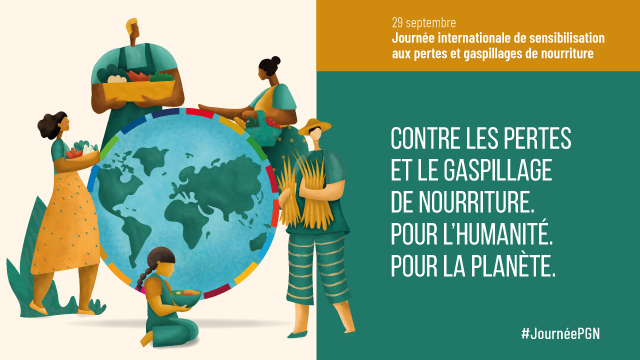 The 2023 International Day of Awareness of Food Loss and Waste (#IDAFLW) is a call for all to reduce food loss and waste (FLW). While 74 kg of food is being wasted on average per person each year worldwide (UNEP, 2021), food production is increasingly being impeded and food security endangered in times of economic, environmental and geopolitical crises. It is estimated that 13 percent of the world’s food production for human consumption is lost (discarded, incinerated or otherwise disposed)… +
The 2023 International Day of Awareness of Food Loss and Waste (#IDAFLW) is a call for all to reduce food loss and waste (FLW). While 74 kg of food is being wasted on average per person each year worldwide (UNEP, 2021), food production is increasingly being impeded and food security endangered in times of economic, environmental and geopolitical crises. It is estimated that 13 percent of the world’s food production for human consumption is lost (discarded, incinerated or otherwise disposed)… +Democratic Republic of the Congo: Improving COPACO’s training system (1,600,000 Producers)
- 06/09/2023
- Posted by: Sandra Borma
- Category: Corp EN, News
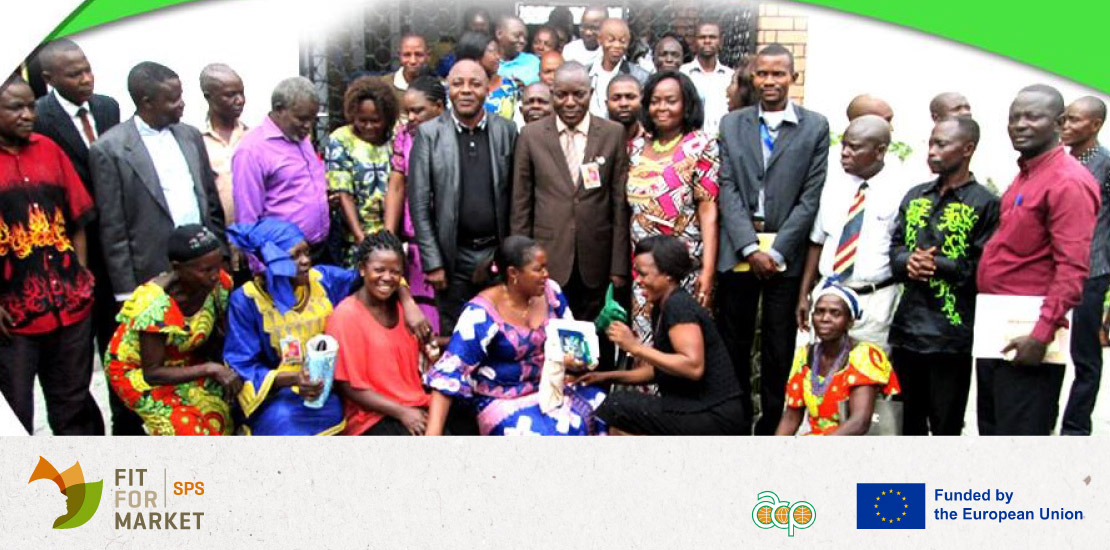 Created in 1998, the Confédération Paysanne du Congo (COPACO-PRP) is a professional organisation comprising 452 local entities: farmers’ associations, production cooperatives, farmers’ groups, cooperative unions, farmers’ federations and farmers’ production and service organisations. COPACO-PRP is a member of the Plateforme Régionale des Organisations Paysannes d’Afrique Centrale (PROPAC) and therefore of PAFO. It has a national office in Kinshasa, 18 provincial coordinators, 130 local grassroots units and 17 extension workers. COPACO represents some 1,600,000 producers (57% men and 43% women) who… +
Created in 1998, the Confédération Paysanne du Congo (COPACO-PRP) is a professional organisation comprising 452 local entities: farmers’ associations, production cooperatives, farmers’ groups, cooperative unions, farmers’ federations and farmers’ production and service organisations. COPACO-PRP is a member of the Plateforme Régionale des Organisations Paysannes d’Afrique Centrale (PROPAC) and therefore of PAFO. It has a national office in Kinshasa, 18 provincial coordinators, 130 local grassroots units and 17 extension workers. COPACO represents some 1,600,000 producers (57% men and 43% women) who… +Tanzanian Horticultural companies trained in Food Safety Management
- 05/09/2023
- Posted by: Sandra Borma
- Category: Corp EN
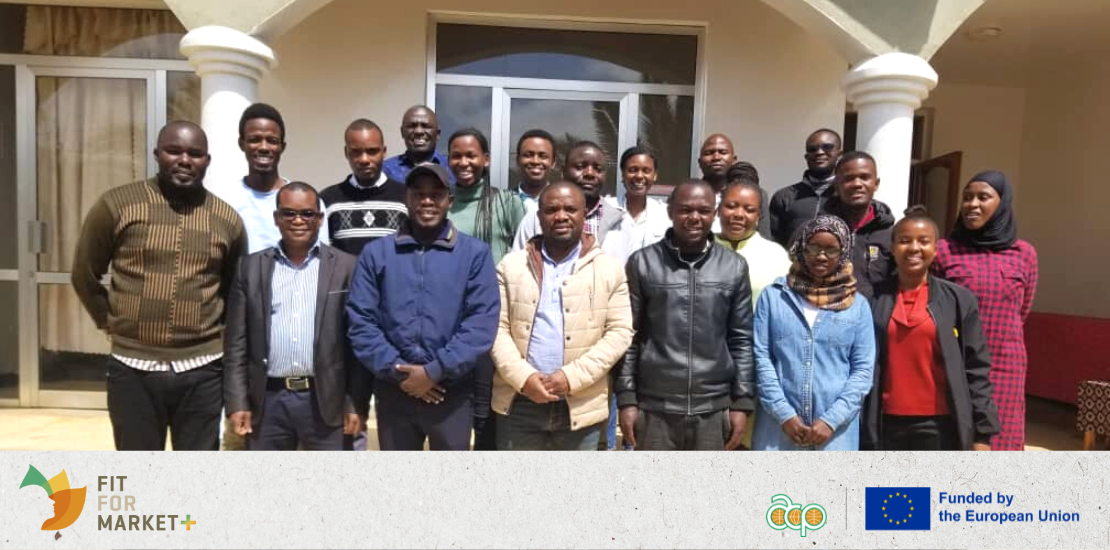 The Fit for Market Plus programme recently organised a four-day collective training session on “Principles of Food Safety Quality Management System and Traceability” in the Southern Highlands of Tanzania, specifically in Njombe, from the 22 to 25 August 2023. This training aimed to enhance the skill and capacities of the technical and compliance staff of horticultural companies, including farm managers, agronomists, production managers, harvesting managers, processing and packaging managers and quality and traceability managers in Food Safety Quality Management System… +
The Fit for Market Plus programme recently organised a four-day collective training session on “Principles of Food Safety Quality Management System and Traceability” in the Southern Highlands of Tanzania, specifically in Njombe, from the 22 to 25 August 2023. This training aimed to enhance the skill and capacities of the technical and compliance staff of horticultural companies, including farm managers, agronomists, production managers, harvesting managers, processing and packaging managers and quality and traceability managers in Food Safety Quality Management System… +PAFO-COLEAD Innovations Session 14: Climate-resilient practices and innovations in agri-food SMEs
- 16/08/2023
- Posted by: Sandra Borma
- Category: Corp EN
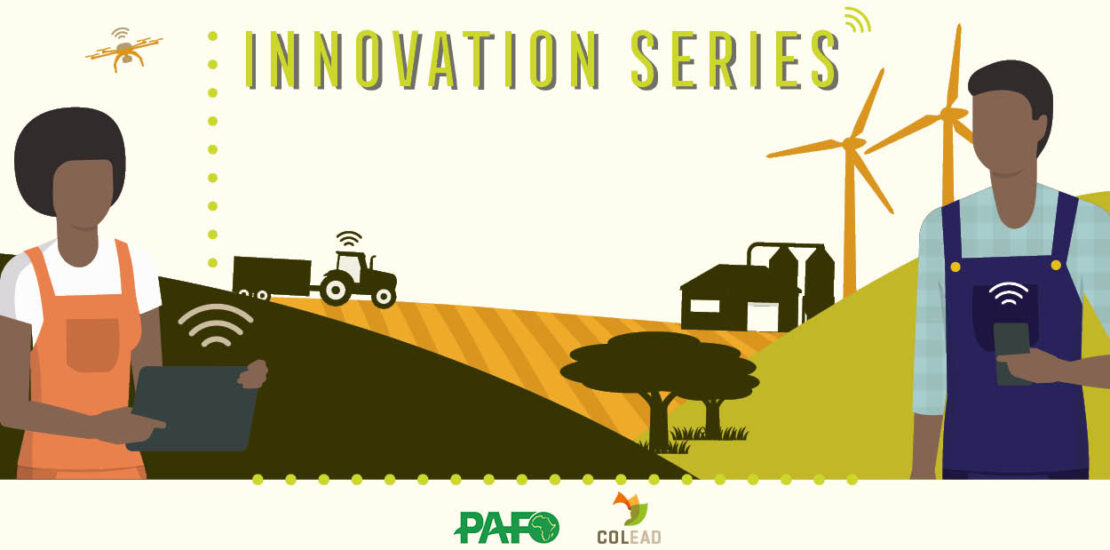 The next Innovations Session n°14 will focus on Climate-resilient practices and innovations by agrifood SMEs and will be held online on Wednesday 30 August 2023, 12:00-14:00 UTC. Find out more in the programme and join the discussion (available in English, French and Portuguese) led by the Pan-African Farmers’ Organization (PAFO) and the COLEAD by registering here. During this Innovations Session n°14, agrifood farmers and entrepreneurs will present climate-resilient practices and innovations that they have developed to support the sustainability of… +
The next Innovations Session n°14 will focus on Climate-resilient practices and innovations by agrifood SMEs and will be held online on Wednesday 30 August 2023, 12:00-14:00 UTC. Find out more in the programme and join the discussion (available in English, French and Portuguese) led by the Pan-African Farmers’ Organization (PAFO) and the COLEAD by registering here. During this Innovations Session n°14, agrifood farmers and entrepreneurs will present climate-resilient practices and innovations that they have developed to support the sustainability of… +Madagascar: Assessment of SAHANALA’s quality management system and FSSC 22000 standard’ s training
- 16/08/2023
- Posted by: Sandra Borma
- Category: Corp EN, News
 To address the increasing request for dried ginger and improve current practices, SAHANALA has received support from COLEAD as part of its Fit for Market SPS programme. The aim was to establish a sanitary quality management system to obtain Food Safety System Certification (FSSC) 22000 certification for ginger processing. The FSSC 22000 standard provides a certification model that ensures food safety standards and processes throughout the food supply chain. The first step of the mission, overseen by an expert from… +
To address the increasing request for dried ginger and improve current practices, SAHANALA has received support from COLEAD as part of its Fit for Market SPS programme. The aim was to establish a sanitary quality management system to obtain Food Safety System Certification (FSSC) 22000 certification for ginger processing. The FSSC 22000 standard provides a certification model that ensures food safety standards and processes throughout the food supply chain. The first step of the mission, overseen by an expert from… +COLEAD highlights young agripreneurs and their contribution to a sustainable world
- 12/08/2023
- Posted by: Sandra Borma
- Category: ACP EN, Corp EN, News
 The 2023 International Youth Day highlighted the importance to young people of “green skills”, which include “the knowledge, skills, values and attitudes needed to live, develop and sustain a sustainable and resource-efficient society”. Young agricultural leaders and entrepreneurs are key players in achieving many of the Sustainable Development Goals (SDGs), as they contribute to food security and safety, create jobs and improve livelihoods through responsible engagement in their farms and businesses. They are also leading the transition to a digital… +
The 2023 International Youth Day highlighted the importance to young people of “green skills”, which include “the knowledge, skills, values and attitudes needed to live, develop and sustain a sustainable and resource-efficient society”. Young agricultural leaders and entrepreneurs are key players in achieving many of the Sustainable Development Goals (SDGs), as they contribute to food security and safety, create jobs and improve livelihoods through responsible engagement in their farms and businesses. They are also leading the transition to a digital… +EU and GB MRL changes in 2023 (April-June2023)
- 28/07/2023
- Posted by: Gaetan Dermien
- Category: Country
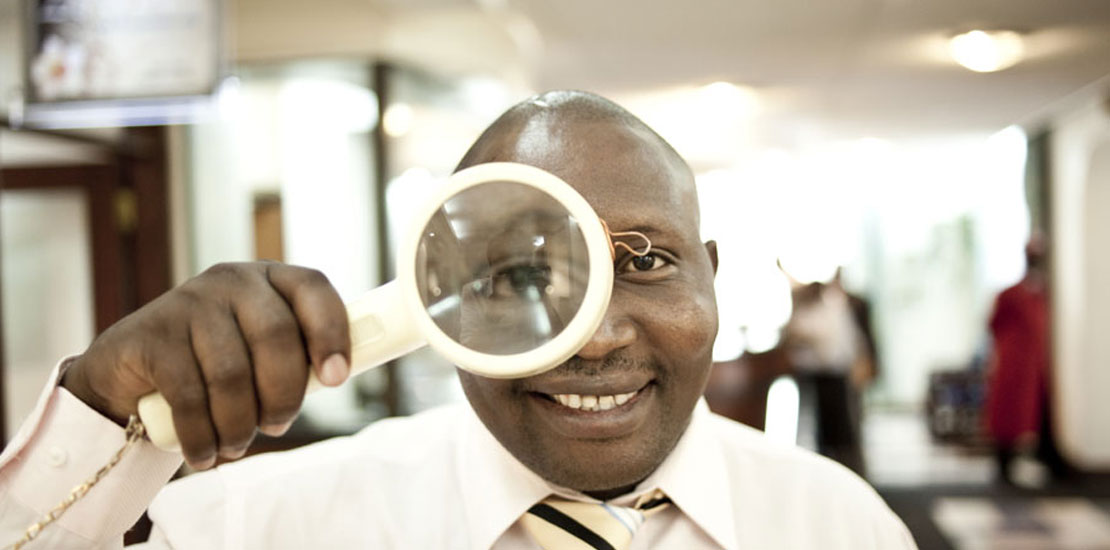 Changes to EU and GB pesticide maximum residue levels Following the departure of the United Kingdom from the European Union (EU), COLEAD’s monitoring of pesticide regulations now covers maximum residue limit (MRL) changes in both the EU and Great Britain (GB), enabling us to keep COLEAD members and partner-beneficiaries up-to-date.Note that EU MRLs still apply in Northern Ireland (GB covers only England, Scotland and Wales).During the period April-June 2023, we have been highlighting significant changes to EU MRLs that affect… +
Changes to EU and GB pesticide maximum residue levels Following the departure of the United Kingdom from the European Union (EU), COLEAD’s monitoring of pesticide regulations now covers maximum residue limit (MRL) changes in both the EU and Great Britain (GB), enabling us to keep COLEAD members and partner-beneficiaries up-to-date.Note that EU MRLs still apply in Northern Ireland (GB covers only England, Scotland and Wales).During the period April-June 2023, we have been highlighting significant changes to EU MRLs that affect… +EU and GB approval changes (April-June 2023)
- 28/07/2023
- Posted by: Gaetan Dermien
- Category: Uncategorized
 EU and GB approval changes Following the United Kingdom (UK) departure from the European Union (EU), COLEAD’s Regulation Monitoring now covers both EU and Great Britain (GB) approval changes, enabling us to keep COLEAD members and partner-beneficiaries up-to-date on both regulatory frameworks. Note that EU approvals still apply in Northern Ireland. Great Britain is the mainland comprising England, Scotland and Wales. The European Commission (EC) has recently published changes to 52 plant protection product (PPP) approvals within the EU, some… +
EU and GB approval changes Following the United Kingdom (UK) departure from the European Union (EU), COLEAD’s Regulation Monitoring now covers both EU and Great Britain (GB) approval changes, enabling us to keep COLEAD members and partner-beneficiaries up-to-date on both regulatory frameworks. Note that EU approvals still apply in Northern Ireland. Great Britain is the mainland comprising England, Scotland and Wales. The European Commission (EC) has recently published changes to 52 plant protection product (PPP) approvals within the EU, some… +Change of MRLs from the CODEX ALIMENTARIUS
- 20/07/2023
- Posted by: Gaetan Dermien
- Category: ACP EN
 A review of key Codex MRL changes in 2022-2023 Every year, the use of many plant protection products is affected by changes to permitted Maximum Residue Limits (MRLs). In July 2022, MRLs were changed for 476 combinations of active substances/commodities and recently published in the report of the 53rd session of the CODEX committee on pesticide residues. These changes often have a direct impact on producers who may need to change production methods (Good Agricultural Practices – GAP) in order… +
A review of key Codex MRL changes in 2022-2023 Every year, the use of many plant protection products is affected by changes to permitted Maximum Residue Limits (MRLs). In July 2022, MRLs were changed for 476 combinations of active substances/commodities and recently published in the report of the 53rd session of the CODEX committee on pesticide residues. These changes often have a direct impact on producers who may need to change production methods (Good Agricultural Practices – GAP) in order… +World Youth Skills Day: the Caribbean ecosystem supporting youth entrepreneurship
- 15/07/2023
- Posted by: Sandra Borma
- Category: ACP EN, Corp EN
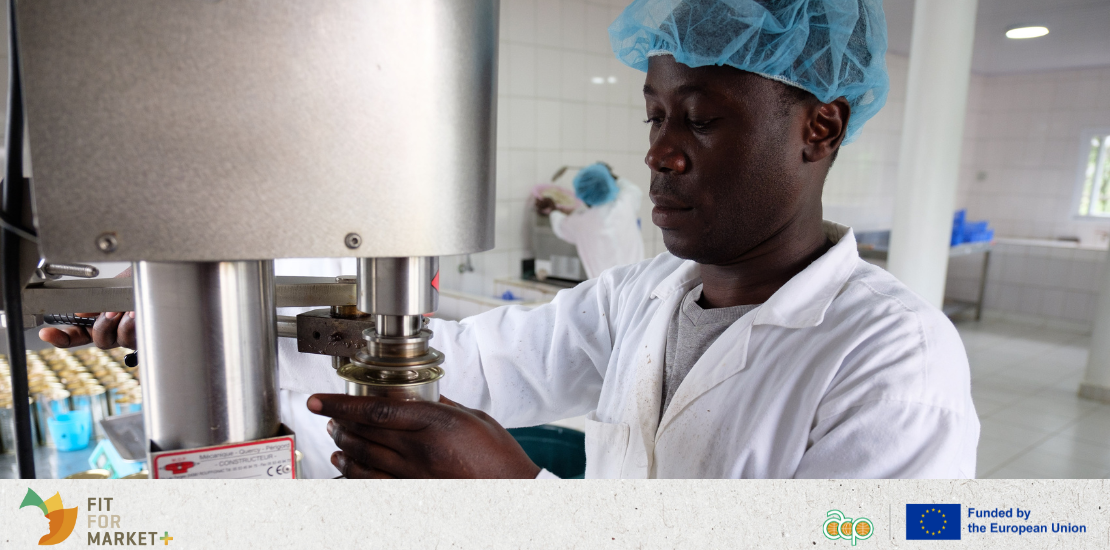 World Youth Skills Day focuses on the strategic importance of equipping youth with skills for employment, decent work, and entrepreneurship. Youth play a central role in the agricultural value chain, however youth-specific support systems must be in place to enable their success. This calls on an entrepreneurial ecosystem that attracts young entrepreneurs and understands their needs. To continue this discussion, the IICA-COLEAD Caribbean Agrifood Business series held its ninth session focusing on Successes from innovative youth-led businesses/SMEs in the agrifood… +
World Youth Skills Day focuses on the strategic importance of equipping youth with skills for employment, decent work, and entrepreneurship. Youth play a central role in the agricultural value chain, however youth-specific support systems must be in place to enable their success. This calls on an entrepreneurial ecosystem that attracts young entrepreneurs and understands their needs. To continue this discussion, the IICA-COLEAD Caribbean Agrifood Business series held its ninth session focusing on Successes from innovative youth-led businesses/SMEs in the agrifood… +
